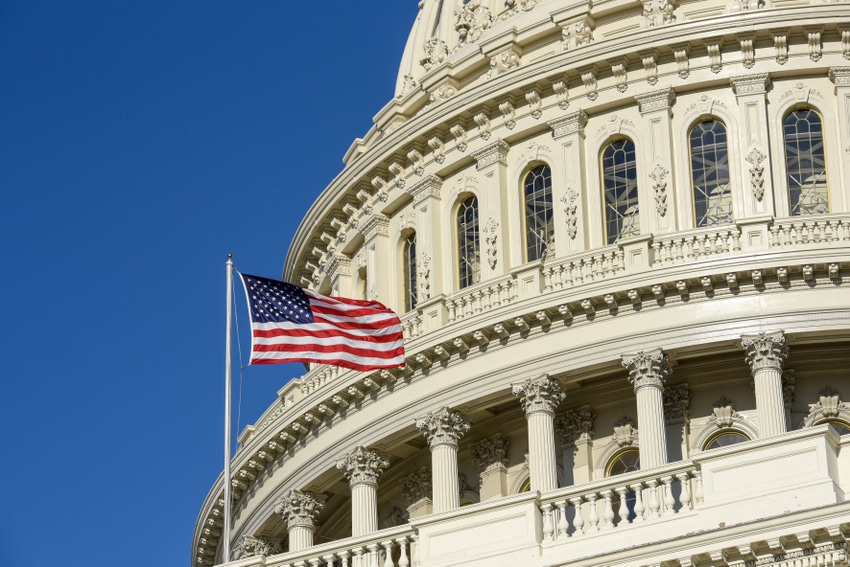Congress passes $1.7 trillion omnibus appropriations bill
Legislative Watch: $3.7 billion disaster funding; Senate confirms key ag positions; Scott elected as House Ag Ranking Member; organic producers need aid.

Congress passed a $1.7 trillion omnibus appropriations bill to avoid a government shutdown and to fund the federal government through the remainder of fiscal year 2023 (Sept. 30, 2023). The bill includes approximately $772.5 billion for non-defense spending and $858 billion for defense spending. It includes approximately $45 billion in additional aid for Ukraine and nearly $40 billion in disaster relief.
Various agricultural items included in the bill:
Disaster assistance - $3.7 billion in disaster funding for crop and livestock losses due to drought and other problems in 2022.
Livestock Mandatory Reporting – Livestock Mandatory Reporting is extended until Sept. 30, 2023.
Price transparency – The USDA and the Department of Justice are to analyze issues regarding transparent meat pricing and price discovery for cattle producers.
Chinese chicken – Prohibits funding to procure raw or processed chicken imported into the United States from China for the federal school lunch program.
Foreign audits – The USDA will conduct audits to evaluate a country or region regarding veterinary control and oversight; disease history and vaccination practices; livestock demographics and traceability; surveillance practices; diagnostic laboratory capabilities; and emergency preparedness and response.
Packers and Stockyards Act– The Agricultural Marketing Service will receive $5 million for oversight and enforcement of the Packers and Stockyards Act.
NIFA – The National Institute of Food and Agriculture would receive $1.7 billion, an increase of $64 million over FY '22. NIFA funds research at land grant universities.
Commodity assistance - $250 million is allocated for rice producer payments to compensate for the drop in revenue this year. $100 million is provided for payments to cotton merchandisers as a result of losses related to the pandemic or supply chain disruptions.
Growing Climate Solutions Act – Modifies the Growing Climate Solutions Act to facilitate carbon markets.
The bill now goes to President Biden to sign into law.
Senate confirms key ag positions
The Senate confirmed Alexis Taylor to be USDA's Under Secretary for Trade and Foreign Agricultural Services, Doug McKalip as USTR Chief Agricultural Negotiator, and Jose Emilio Esteban as USDA's Under Secretary for Food Safety.
Taylor has been serving as the director of the Oregon Department of Agriculture since December of 2016. She served as USDA's Deputy Under Secretary for Farm and Foreign Agricultural Services during the Obama administration.
McKalip has been serving as an advisor to Secretary of Agriculture Tom Vilsack on trade, national security, animal and plant health regulations.
Esteban has been chief scientist of USDA's Food Safety and Inspection Service.
Scott elected as House Ag Ranking Member
Representative David Scott (D-GA) has been elected by the House Democratic Caucus to serve as Ranking Member of the House Agriculture Committee for the 118th Congress. Scott served as chairman of the committee during the 117th Congress.
Organic dairy, poultry producers need aid
A group of 27 Senators and Representatives have written to Secretary of Agriculture Tom Vilsack asking to provide emergency assistance for organic dairy and poultry producers.
The members said, "We are writing on behalf of the U.S. organic dairy and poultry sectors, made up of thousands of family farmers and the businesses that support them, to request emergency relief in response to skyrocketing feed costs that are impacting the future viability of the industry. The situation is dire and requires your immediate attention. We urgently ask that you work closely with Congress and stakeholders to develop a solution that quickly gets assistance to producers to prevent further losses. Without rapid action, families are on track to lose their farms."
The members cited the increase in feed costs. Prices for organic soybeans in the United States reached $40.52 per bushel in May 2022, up close to 110% from January 2021’s $19.37 per bushel. Feed costs for organic dairy and poultry producers traditionally average over 50% of the total cost of production.
The letter was organized by Senator Tammy Baldwin (D-WI) and Representatives Jared Huffman (D-CA)and Chellie Pingree (D-ME).
About the Author(s)
You May Also Like



